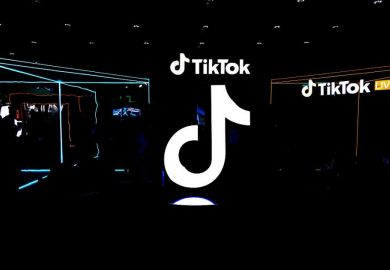Source: Alamy
Scene and herd: researchers are increasingly using data from ‘citizen inquiry’
While 2012 was dubbed the “year of the Mooc”, 2013 will be remembered as the “year of the crowd”, according to the co-author of a report on emerging technologies with the potential to disrupt higher education.
The Open University report Innovating Pedagogy 2013 looks at six fledgling technological approaches that could revolutionise teaching, and also reviews the progress of four more established ideas including massive open online courses and learning analytics.
Among the emerging technologies are “crowd learning”, which involves harnessing the local knowledge of many people to answer questions, and “citizen inquiry”, which refers to mass public participation in structured investigations such as mapping climate change or recording bird populations.
“The aim of the report is to give greater prominence to the pedagogy, rather than just focusing on the technology,” explained its co-author Mike Sharples, professor of educational technology at The Open University. “This year will be the year of the crowd, I think – or perhaps the year of the intelligent crowd.”
The report points to a “growing interest in involving people without scientific training in practical science investigations”, which will not only change how research is conducted, but could revolutionise the way it is funded.
If a project has enough public interest, Professor Sharples said, there is nothing to stop researchers from asking for support – or even money – to help them get started.
“Imagine a research council but without funding,” he continued. “You have a project you want to do, and using citizen inquiry you can bring together a team of people who want to help you carry it out.
“A lot of academics’ time is spent writing grant proposals that never get funded. This could be a way to give more proposals – even those that don’t get funded – an opportunity to run. That could be attractive.”
He likened the approach to Kickstarter, a platform that allows the initiators of creative projects to solicit financial backing from the public. There was no reason why such an approach would not work for research, Professor Sharples said.
Elsewhere, the report assesses the early impact of Moocs on higher education. It concludes that although the scale of Moocs and the amount of data they collect allow for “rapid, evidence-informed innovation”, they are unlikely to revolutionise the way universities operate, and would be “absorbed” into higher education pedagogy.
“Will Moocs cause major disruption to education? Probably not, based on past experience,” the report concludes. “Formal education – whether at school, college or university level – is a super-stable system, with an interlocking set of conventions for teaching, curriculum development, recruitment, examination and accreditation that resist external change.”
Nevertheless, Professor Sharples said, Moocs offered “the best opportunity we’ve ever had for studying how people learn”.
“It’s not just about big data analysis, but understanding who is engaging socially; who needs a more personalised style; what are the rhythms of engagement and reflection when people are on a course? It’s partly data analysis, but it is also about understanding learning in depth.”
Register to continue
Why register?
- Registration is free and only takes a moment
- Once registered, you can read 3 articles a month
- Sign up for our newsletter
Subscribe
Or subscribe for unlimited access to:
- Unlimited access to news, views, insights & reviews
- Digital editions
- Digital access to THE’s university and college rankings analysis
Already registered or a current subscriber?




